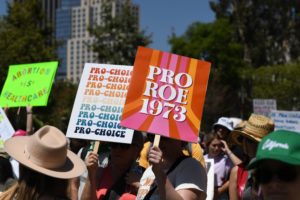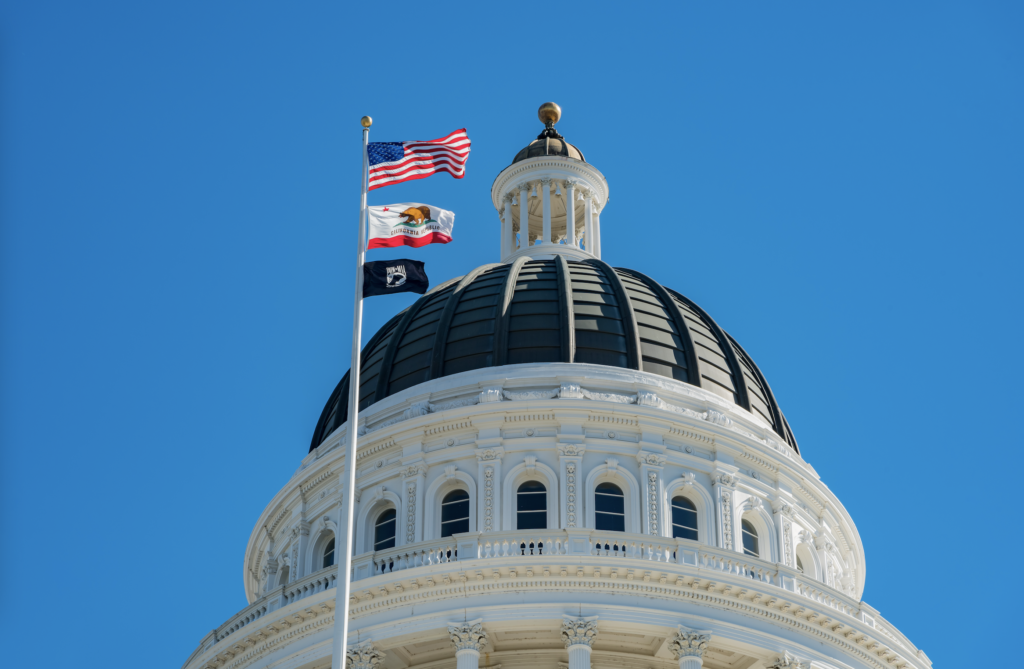With 2024 underway, several new California laws have taken effect — or will soon — that would be of interest to Catholic residents in the state and beyond.
Here are just some of the hundreds of laws being put into action in 2024. Read or search for all bills at leginfo.legislature.ca.gov.
ABORTION
Several bills related to abortion were signed into law by California Gov. Gavin Newsom. Said Newsom: “The right to an abortion is enshrined in California’s Constitution. We will continue to protect women and health care workers who are seeking and providing basic care.”
SB 345: Crafted by state Democrat Sen. Nancy Skinner, this law would protect health care professionals who perform or provide abortions and gender-affirming care in California from punishment by states where these procedures are illegal. The bill would also safeguard any out-of-state patients who came to California to receive this care.
AB 352: The bill would require companies and institutions that manage electronic health records from protecting, separating, and shielding a patient’s data as it relates to abortion, contraceptives, and gender-affirming care. The bill, authored by state Democrat Assemblywoman Rebecca Bauer-Kahan, would also prohibit healthcare providers from releasing medical information that would identify someone who received those specific services. Companies need to comply by July 1.
SB 385: State Senate President Pro Tem Democrat Toni Atkins generated this bill that would allow physician assistants to be trained beyond their normal instruction to perform certain abortions without the supervision of a physician or surgeon. The goal of the bill is to expand the number of health care providers who have the ability to perform abortions.
HEALTH
Several bills increased health care services and health-related leave for all California residents, including more for undocumented immigrants. Said Newsom: “We’re making it known that the health and well-being of workers and their families is of the utmost importance for California’s future.”
Expanding Medi-Cal to immigrants: With this new bill, California made history, becoming the first state in the U.S. to provide health care coverage to undocumented immigrants of all ages. The state had already provided coverage to those under 26 years old and for immigrants over 50. This law is expected to cost $4 billion annually, but a new bill has already been introduced attempting to repeal it. The move brings California closer to its goal of providing health care coverage to all of its residents.
SB 616: California Democrat Sen. Lena Gonzales initiated this bill that would guarantee eligible workers in the state receive at least five days of paid sick leave. After five days, employers can control how many more days the employee could accrue. The new law increased the minimum number of sick days from the three that were approved in 2015. “Too many folks are still having to choose between skipping a day’s pay and taking care of themselves or their family members when they get sick,” Newsom said.
SB 848: Under this new law, an employee would be granted up to five days of leave for a “reproductive loss,” which includes miscarriages, in vitro fertilization, or failed adoption or surrogacy. The bill, sponsored by state Democrat Sen. Susan Rubio, would apply to both parents.

HOUSING
SB 4: It’s no secret that California has continually fallen short in creating housing for its growing population, especially affordable housing. Several bills were passed in the latest legislative session meant to spur housing construction by removing some of the red tape. SB 4, dubbed the “Yes in God’s Backyard” bill, is one of those laws, allowing religious institutions, colleges, and universities to build affordable housing on their land without having to go through lengthy rezoning processes and environmental reviews.
A church, for example, could have unused land that it could develop for affordable housing, and would have the ability to build the project “by right” — without needing a discretionary approval process.
The bill does have restrictions on affordable housing — requiring a 55-year commitment for rentals and a 45-year commitment on owned units — and distance from industrial or refinery sites.
“The era of saying no to housing is coming to an end,” said state Democrat Sen. Scott Wiener, who authored the bill. “We’ve been planting seeds for years to get California to a brighter housing future.”
LGBT
California continues to introduce policies for those who identify as “LGBT” that Newsom says “will help protect vulnerable youth, promote acceptance, and create more supportive environments in our schools and communities.”
AB 5: Dubbed the “Safe and Supportive Schools Act,” state Democrat Assemblyman Rick Zbur authored this bill, which would require the California Board of Education to develop an online training curriculum to support LGBT cultural competency training for teachers and other certificated employees, starting with the 2025–26 school year. At least one hour of training would be required annually for teachers of students in grades 7-12.
SB 760: Introduced by state Democrat Sen. Josh Newman, this law would require schools to provide at least one gender-neutral bathroom by July 1, 2026. The law applies to all public and private schools with students in grades 1-12. The bill does not apply to transitional kindergarten or kindergarten classes.
MISCELLANEOUS
SB 2: Controversial, and already challenged in court, the law would prohibit someone from carrying a firearm into specific locations, including places of worship, schools, and other “sensitive areas.” The law, authored by state Democrat Sen. Anthony Portantino, would also amend several requirements to allow a person to carry a concealed firearm. A federal appeals court had allowed for the law to go into effect on Jan. 1, but a special appellate panel blocked it on Jan. 6 until the case can be heard again in April. Beyond the law, Newsom has previously called for the U.S. Constitution to be amended to include gun safety measures.
AB 645: Introduced by state Democrat Assembly Members Laura Friedman and Phil Ting, this bill allows six California cities — including Los Angeles, Glendale, and Long Beach — to install “speed cameras” near schools or areas where high-velocity incidents have occurred. Drivers will receive a warning in the first 60 days of installing the cameras and then fines ranging from $50-$500 will be assessed depending on how far over the speed limit. The law is a pilot program that will last until Jan. 1, 2032.

